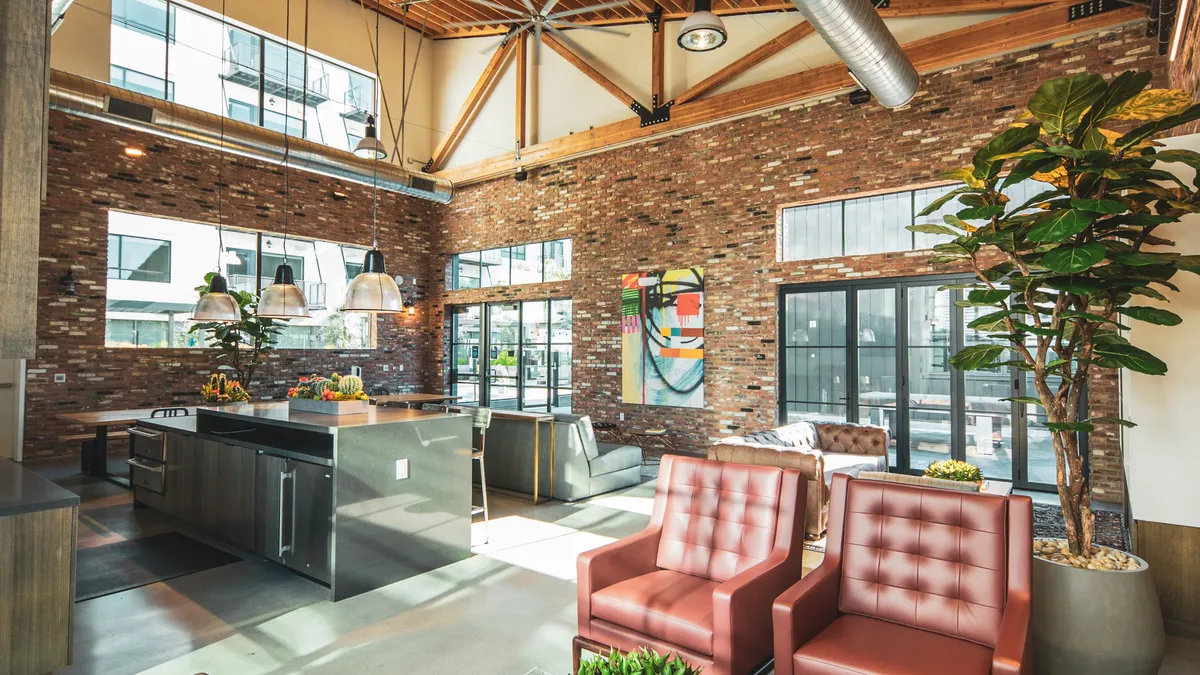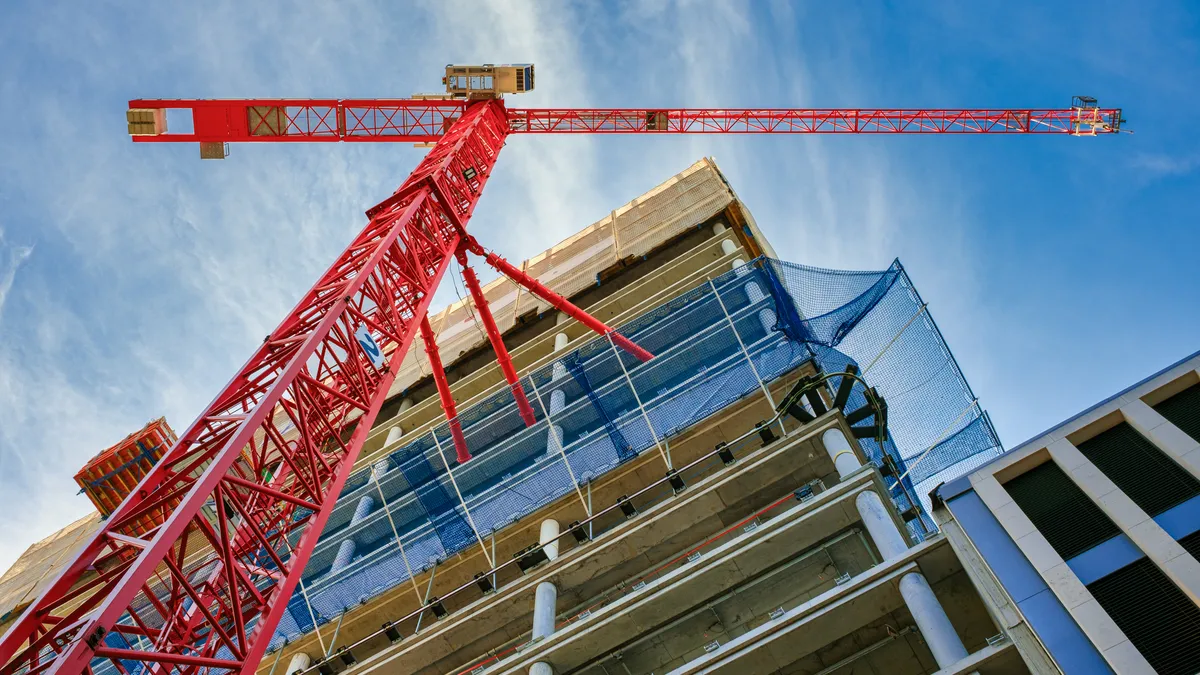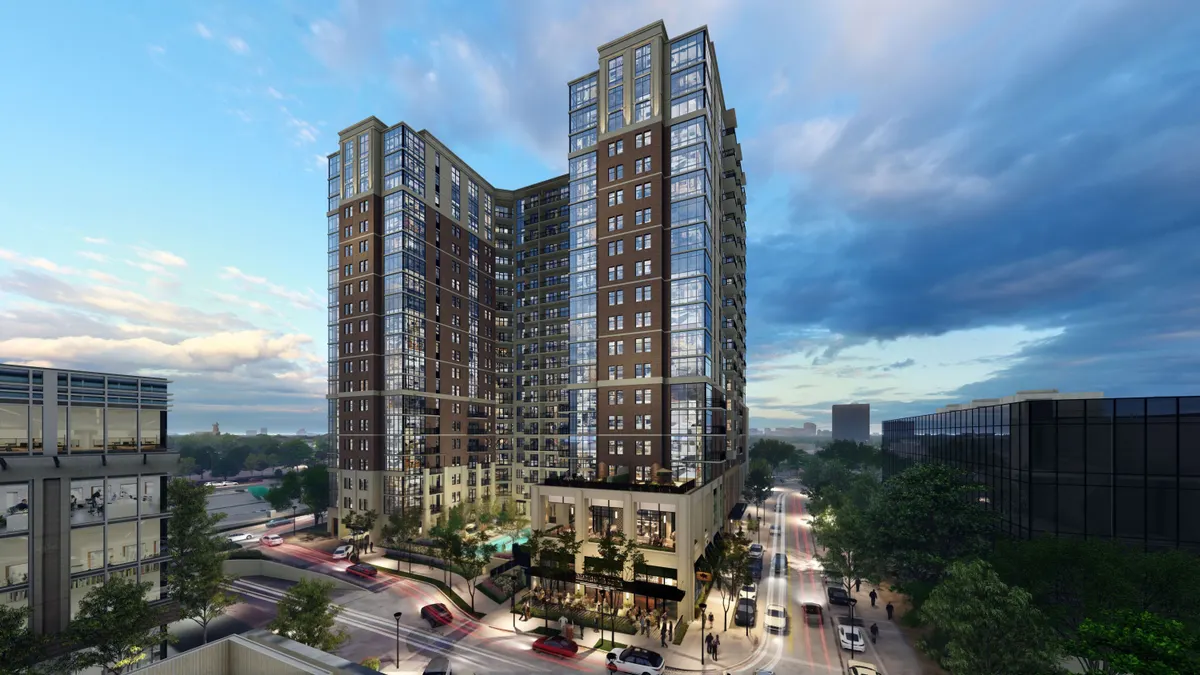Although the trend toward remote work has taken a hit in the past year as more companies call their employees back to the office, major apartment owners and operators report that work-from-home spaces are still tops with renters.
Since the COVID-19 pandemic led more professionals to work from home, coworking spaces have grown into a must-have amenity in apartments. “What I’ve been seeing is definitely a shift toward amenities geared toward the work-from-home renter,” said Kristal Ricks, regional property manager at Charleston, South Carolina-based multifamily firm Greystar, during a webinar last month hosted by Chicago-based amenity provider WithMe, Inc.
Elizabeth Nesler, regional vice president at Greenbelt, Maryland-based Bozzuto, has also observed this shift — and in particular toward smaller spaces, rather than open ones designed for large groups. If a building is going to have a conference room, Nesler recommends only having one.
“I think the typical renter today is looking for individualized work-from-home setups, versus the traditional conference rooms we used to see,” Nesler said during the webinar. “[Residents] really want privacy when they’re on calls, video conferences, interviews and so on.”
Hand-in-hand with remote work capabilities is access to reliable, high-speed internet. “That’s No. 1,” said Nesler. “They also want access to chargers — to be able to plug in their AirPods, iPhones, laptops. And they want sufficient lighting.”
Fitness expansion
Ricks has observed a greater emphasis on wellness and fitness in recent years. This has led to a wider variety of fitness offerings at multifamily properties, beyond the standard cardio and weight setups.
“We’re seeing really top-notch fitness amenities with outside-the-box equipment like TRX [equipment],” Ricks said. “I've seen CrossFit-style setups. Some of our communities even have turf and tire-flipping areas — some even go as far as combining indoor and outdoor elements.”
Pickleball’s ongoing popularity — especially among younger age groups, according to Courtney Richardson, senior portfolio manager at Denver-based Cardinal Group Cos. — has also led some properties to either offer new courts or to convert other facilities, such as basketball or tennis courts. However, Cardinal Group is treading with caution, just in case pickleball is a short-lived trend.
“We’re considering flexible options that allow the space to remain usable for basketball,” Richardson said during the event. “That way, we can adapt as preferences change.”
Ricks added that a pickleball court at one of Greystar’s properties didn’t see much use until the management decided to highlight and leverage it. “Once we added some resident programming and really spread the word through social media and community engagement — things like competitions — it helped advertise it better and got more people using it,” Ricks said.
Quiet spaces
Another extension of this wellness focus is a desire for quiet spaces — not just for working, but for leisure or personal enrichment.
“A lot of people have been looking for comfort and outdoor space,” Richardson said. “Just being outside and breathing fresh air has become huge.”
To this end, one amenity that Richardson has seen a huge return on investment with is a zen garden, or a dry garden space meant for meditation or contemplation, often located outdoors. “They’re multifunctional,” she said. “You can do outdoor yoga, have communal gatherings, host poetry nights or tea hour. You can also just call it “quiet time,” and it’s a peaceful place for someone to sit outside and read.”
What isn’t worth it?
When asked about the amenities that aren’t generating renter interest, Nesler noted that theater rooms have been falling out of use. At one of the larger buildings she oversees, Bozzuto converted the theater and adjacent billiard rooms into individual work-from-home pods.
“It’s been very well-received by residents,” Nesler said. “The theater room was just old. It had been there for like 10 years and didn’t get much use.”
Old-style business centers with community computers have also gone out of favor. “Everyone has their own laptop now, right? We don’t need those desktops sitting in there,” Richardson said.
Some more niche amenity additions can depend heavily on the property’s demographics. For instance, while Nesler noted a golf simulator may not work as well in some properties, Bozzuto did add one to a property in Minnesota that was right across the street from a golf course.
“Obviously, we’re trying to attract renters who enjoy golf,” Nesler said. “I think you have to be thoughtful about that kind of amenity.”


















